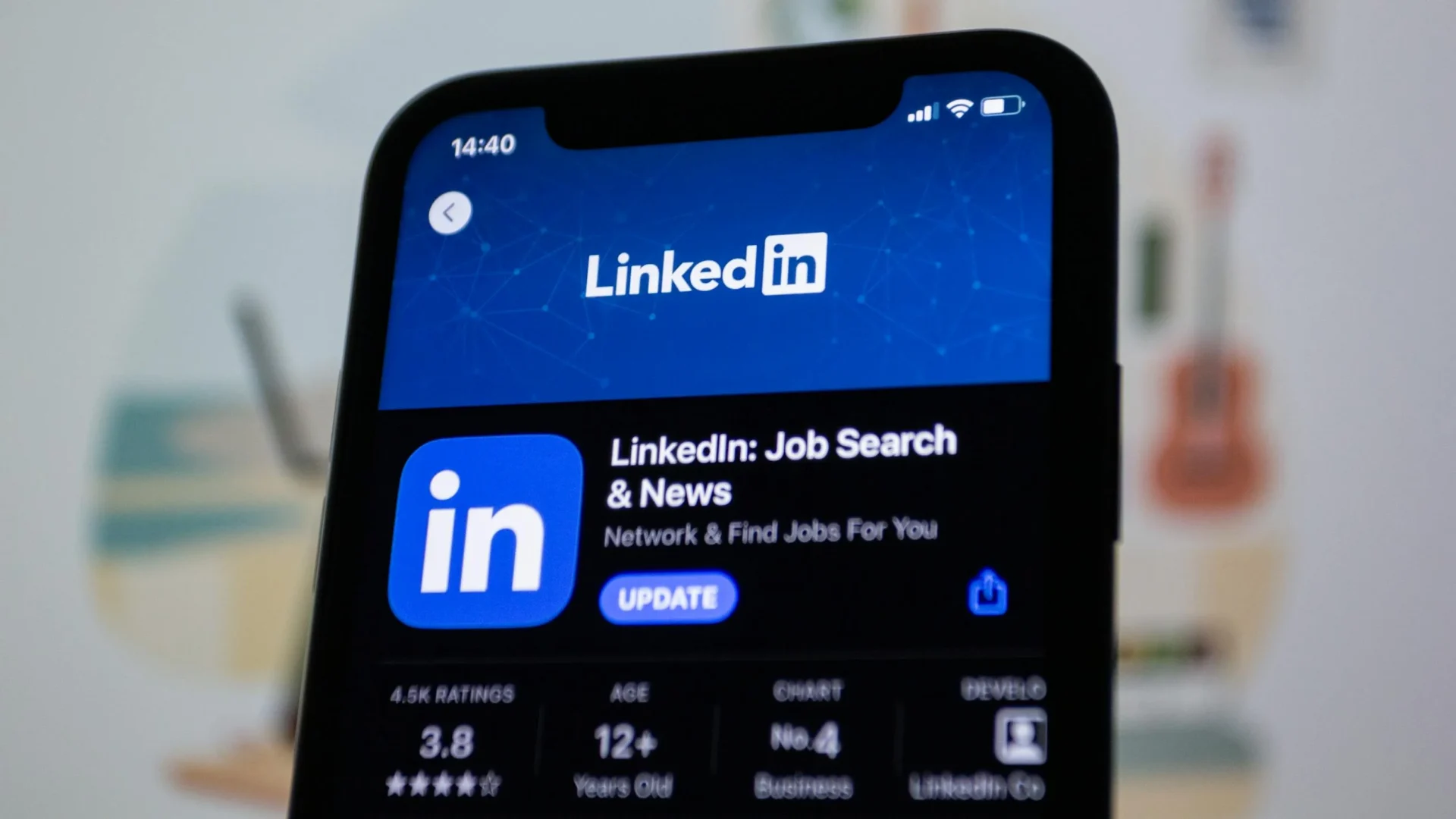Irish Data Protection Authority Imposes €310M Fine On LinkedIn For Privacy Breaches

The Irish Data Protection Authority (DPC) imposed fines totaling €310 million on LinkedIn in a big and meaningful case showing how important data privacy is in the modern day digital world. This follows a whole investigation of LinkedIn’s use of personal data, especially on how it carries out behavioural analysis and targeted advertising.
The action spotlights Ireland’s largest role in allowing many global technology companies based in Europe to headquarter in a country whose main contribution to the tech industry in Europe also acts as the enforcer of tech giants in Ireland.
Overview Of The Investigation And Main Findings
In August 2018, the Irish Data Protection Authority began investigating LinkedIn data processing activities in response to a complaint by a French non profit represented to the French Data Protection Authority.
Since LinkedIn’s European operations are based in Dublin, the Irish Data Protection Authority was the lead supervisory authority for the case, in line with the GDPR’s “one-stop-shop” mechanism.
Of the key principles established by the GDPR, the investigation found that LinkedIn violated principles of fairness and lawfulness as regards the processing for behavioural profiling and targeted advertising of user data.
The inquiry found that LinkedIn had not had a sufficient legal basis for processing personal data — a primordial requirement under the GDPR. According to the Irish Data Protection Authority (DPC), LinkedIn’s actions amounted to a significant infringement of individuals’ data protection rights, particularly the right to control how personal information is used.
GDPR Constraints and Approaches to Data Processing
GDPR requires an organisation to demonstrate at least one of the legitimate grounds for processing personal data. These may include: users counter, performance of contractual obligations, or the legitimate interests of the enterprise, however these have conditions.
The Irish Data Protection Authority found that LinkedIn’s advertising data processing activities did not meet such conditions.
Graham Doyle, the Deputy Commissioner of the Irish Data Protection Authority, discussed the importance of the matter: “Data subject’s data protection rights are violated if their personal data is processed without an appropriate legal basis and it is so fundamental that it is a serious infringement.”
This core tenet is meant to reinforce the GDPR’s assertion that organisations adhere to data protection and privacy laws, and ensure accountability in relation to the personal data they hold.
Consequences And Implemented Measures
The findings drew a direct line to three administrative sanctions by the Irish Data Protection Authority against LinkedIn amounting to €310 million in fines. Apart from the financial penalties, the DPC also delivered a warning and directed LinkedIn to adhere fully to the provisions of GDPR while processing data.
The determination was made after reaching out to other data regulators in Europe. The Irish regulator sent a proposal for a draft decision to the rest of EU countries in July 2024, and no objections were made to this proposal.
This unified stance across Europe emphasises the extent of the violations of GDPR by LinkedIn and indicates a unified response action in enforcing data protection laws to the breaches of this scale.
LinkedIn’s Response
Following the ruling, LinkedIn expressed disappointment but said it will “take appropriate action” based on the guidance provided by the Irish Data Protection Authority.
A LinkedIn spokesperson said: “Today, the Irish Data Protection Commission (DPC) issued a final decision after investigating complaints from 2018. We also think we comply with the General Data Protection Regulation (GDPR) but at this stage, so quickly after receiving the DPC decision, the only practical step for us is to discontinue our ad product in Europe and re-evaluate.”
Linkedin stated that it felt confident in its understanding of the GDPR, but the findings by the Irish Data Protection Authority indicated otherwise which has led to one of most extensive fines issued by DPC.
The Role of the Irish Data Protection Authority
The Irish DPC is the leading supervising authority for regulating General Data Protection Regulation compliance at many of the world’s biggest technology companies, so it plays an essential part in ensuring respect by those entities toward privacy rights afforded to European citizens.
The DPC has pursued a number of major cases involving tech giants including Facebook, Google and Apple — all of which have their Europe-based headquarters in Ireland as LinkedIn does.
Whereas, in the past few years Irish Data Protection Authority has been working to enforce GDPR regulations making sure billion-dollar multinational companies are doing right by our data. The LinkedIn example comes in the context of how active DPC is in enforcing compliance with these quite strict data protection standards envisaged by GDPR.
Broader Effects Of The Case On The Tech Industry
A €310 million fine against LinkedIn shines a light on potential GDPR issues for other tech companies. The GDPR’s focus on the lawfulness and transparency of data processing underscores that companies need to actively make sure they are following new rules at each layer, whether it be in digital advertising.
So, the harsh fines a company faces for failing to adhere to GDPR’s stringent standards in LinkedIn’s case is an example of just how crucial digital advertising has become to the business model of most tech companies.
It also serves as a clear warning that the Irish Data Protection Authority and other regulators across the EU are paying attention to how personal data is employed for targeted advertising and similar ends.
Future Steps Planned By LinkedIn
The company will have to implement some major changes in how it acquires user consent and performs targeted behavioural advertising as LinkedIn tries to align its data processing procedures with the new General Data Protection Regulation (GDPR) that governs European page traffic.
The size of the financial penalty is high but for LinkedIn, it may be reputationally damaging as consumers are ever more concerned about data privacy.

The ruling could provide other tech companies with reason to re-evaluate their own data processing activities in respect of the GDPR, particularly around advertising and profiling.
LinkedIn’s experience as a whole will at the same time linger and serve caution to others, following increased scrutiny among Europe’s data protection authorities of how personal information is used.
Conclusion
The case also speaks for the growing importance of data protection in the modern digital world. The Irish Data Protection Authority (DPC) imposed a €310 million fine on LinkedIn for its failure to respect the GDPR requirements to process data and maintain transparency in data processing.
This decision presents a financial and practical challenge for LinkedIn because it needs to modify the practice of processing its data based on the request from the DPC.
Therefore, by the same ruling, the judgement is also serving as a warning to other tech companies who are still in operation within the EU that do not strictly adhere to the requirements of the GDPR.
This case is going to have far-reaching implications for the future of data privacy regulation in Europe and is likely to follow a strong trend by the Irish Data Protection Authority (DPC) in enforcing GDPR enforcement.
Frequently Asked Questions
What fines did the DPC impose on LinkedIn?
The Irish Data Protection Authority (DPC) imposed fines totaling €310 million on LinkedIn due to violations of the General Data Protection Regulation (GDPR) related to personal data processing.
Why was LinkedIn investigated?
LinkedIn was investigated following a complaint from a French non-profit organization regarding the company’s use of personal data for behavioral analysis and targeted advertising, which was deemed non-compliant with GDPR.
What were the DPC’s findings?
The investigation found that LinkedIn violated principles of fairness and lawfulness in data processing, failing to demonstrate a sufficient legal basis for processing personal data, thus infringing on users’ data protection rights.
What is the DPC’s role?
The Irish Data Protection Authority is the leading supervisory body for ensuring compliance with GDPR among many global tech companies headquartered in Ireland, playing a crucial role in enforcing data protection laws.
How is LinkedIn responding?
LinkedIn expressed disappointment with the ruling but stated it would take appropriate action based on the DPC’s guidance, including potentially discontinuing its ad product in Europe to reassess its compliance with GDPR.
LATEST NEWS
DISCOVER MORE





